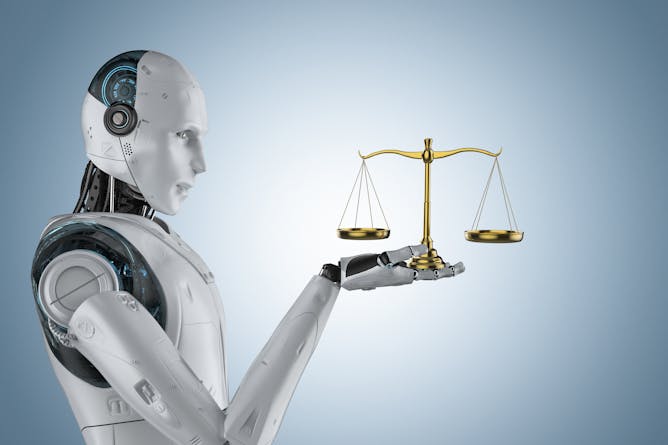|
In the not too distant future, you might find yourself doing business with an artificial intelligence: not just venting to a customer service chatbot, but signing contracts and entering into legally binding agreements with a company that has no human at the helm. But would you trust that sort of business to honor its contracts and follow the law?
Legal scholars Daniel Gervais and John Nay explain that giving AIs an understanding of the law, rather than writing special laws to constrain them, will be key to humans doing business with companies operated by AIs. It’s also key to ensuring that these “artificial persons,” as the courts will likely view them, are law-abiding members of society.
|

|
Eric Smalley
Science + Technology Editor, The Conversation U.S.
|
|

Daniel Gervais, Vanderbilt University; John Nay, Stanford University
If a business is run by an AI and it causes you harm, could you sue the AI?
|
|
|
|
|
Trade
|
-
Arno J. van Niekerk, University of the Free State
Pretoria needs to pull off a balancing act in managing South Africa’s international relations to advance its economic interests.
|
|
Environment
|
-
Grace Augustine, University of Bath; Birthe Soppe, University of Innsbruck
The oil and gas industry is struggling to retain talent – here’s why.
-
Otekenari David Elisha, Ignatius Ajuru University of Education
Environmental degradation of Nigeria’s Niger Delta region is causing poverty as well as food insecurity, increased crime and conflict.
|
|
Retail
|
-
Edward Thomas Jones, Bangor University; Linda Osti, Bangor University
To make a real change to our high streets, we need to think about about the social purpose and economic functions of these areas.
|
|
Work
|
-
Keshav Krishnamurty, York University, Canada
Workplaces committed to diversity and inclusion need to ensure they don’t overlook the importance of addressing mental health concerns.
|
|
Consumers
|
-
Alexandra Sims, University of Auckland; Trish O'Sullivan, Massey University
Manufacturers have too much legal freedom to sell products that don’t last or are hard to repair. It’s time local law caught up with global efforts to address this environmental and consumer issue.
|
|
|
|
More from The Conversation |
|---|
| |
|
| |
| |
| |
| |
|
|